You don’t have to come from a chaotic or high-conflict home for your parents’ divorce to leave a mark.
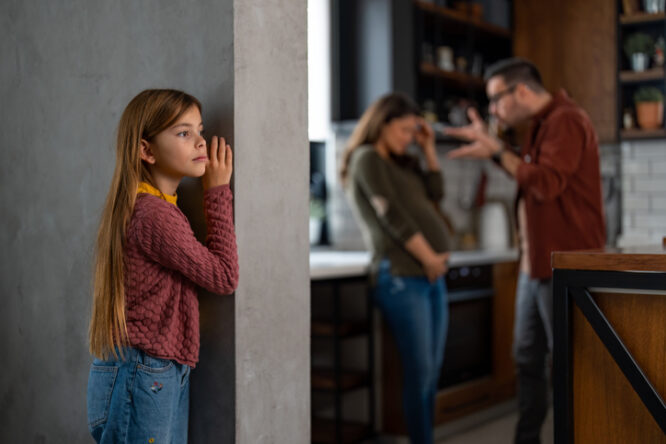
Even in families where everyone tried their best, the emotional landscape still changes when Mum and Dad (or Mum and Mum, or Dad and Dad) split. And for the kids living through it, certain memories stick around in small but meaningfully impactful ways. As a result, these are some of the things children of divorce often carry with them—sometimes openly, sometimes silently, but almost always for life.
1. The moment they were told

That conversation tends to live in high definition. Where they were. How their parents looked. The silence that followed. Even if it was said gently, that moment splits the timeline into a before and after that never quite gets glued back together. It’s not just about the words—it’s the way the ground moved under their feet. That movement, no matter how expected or sudden, tends to stay lodged in memory.
2. Feeling like they had to pick a side

No one might have said it out loud, but the pressure was there. Subtle comments, loyalty tests, awkward handovers. Kids often feel like showing love to one parent means betraying the other, even if both parents tried not to put them in the middle. That emotional tightrope becomes part of their default wiring. Even in adulthood, it can shape how they deal with conflict, loyalty, and guilt.
3. Hearing things they weren’t supposed to hear
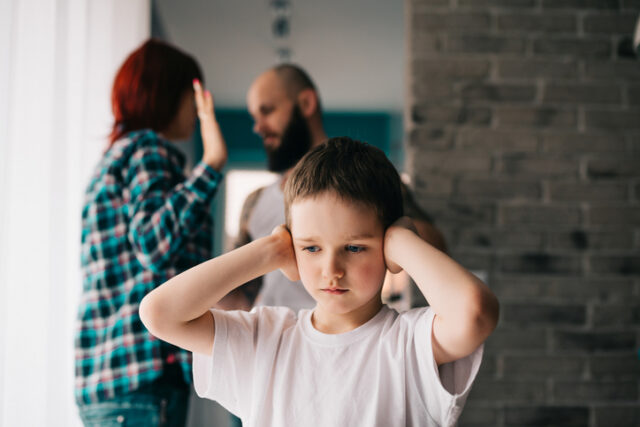
Phone calls through thin walls. Snarky remarks in the car. Late-night venting that wasn’t meant for their ears. Children of divorce often end up knowing more than they should—about finances, betrayals, blame, and pain. They become early experts in reading tone, decoding tension, and filtering truth from damage control. That awareness doesn’t disappear, even when they grow up.
4. Learning to pack a bag like a pro

Living between two homes teaches logistical skills fast. They become skilled in remembering which house has their PE kit, where they left their headphones, how to not forget their toothbrush again. However, that packing and unpacking isn’t just physical—it becomes emotional, too. A quiet recalibration each time they change environments, energy, and expectations.
5. Holidays feeling weird, every single year

What used to be a whole-family tradition suddenly becomes a rotation. Christmases feel split, birthdays feel negotiated, and someone is always missing. Even when everyone’s being civil, there’s a subtle ache that never quite fades during big days. Joy and guilt start to mix, and the question of where to be and who to please can take the shine off what’s supposed to be the happiest occasions.
6. Acting older than they were
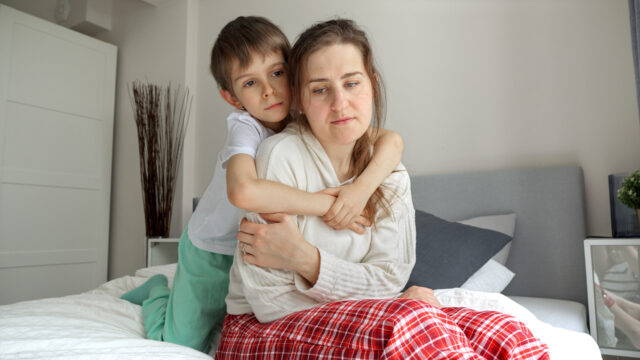
Whether it was comforting a crying parent, looking after a younger sibling, or just learning to self-soothe—many kids of divorce step into grown-up roles early. Not because they were forced to, but because the emotional climate quietly asked them to. That maturity can become part of their identity. However, later in life, it can also show up as burnout, people-pleasing, or the feeling that they always have to be the strong one.
7. Feeling like a burden for having needs
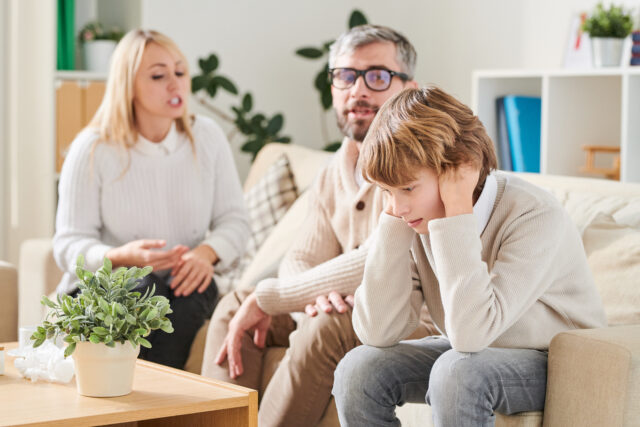
When your parents are going through something heavy, it’s easy to shrink yourself. You learn to stay quiet, not ask for too much, and solve your own problems when possible because you don’t want to add to the stress. That instinct sticks. Even as an adult, you might find it hard to speak up, ask for support, or believe that your feelings won’t be “too much” for someone else to handle.
8. Wanting everyone to just get along, even when they can’t
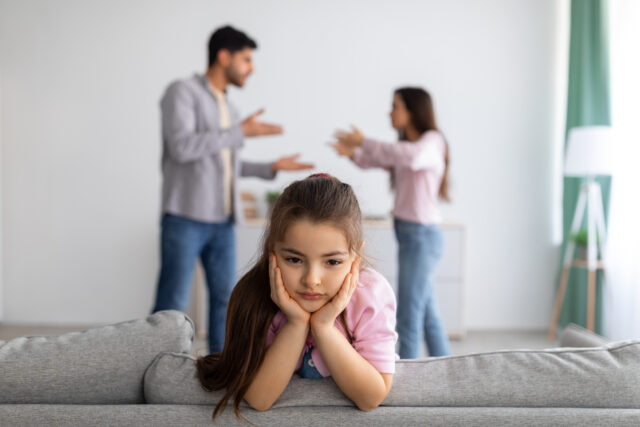
You carry this hope for peace like it’s your job. You want the room to stay calm, the group chat to stay polite, the dinner table to stay light. You develop a radar for conflict and a deep need to fix it before it escalates. This can make you a great mediator, but it can also make you avoidant when it comes to your own anger or needs. Because to you, harmony feels like survival.
9. Always bracing for something to fall apart

When something big breaks once, especially something as central as your family unit, it changes how safe the world feels. Even in relationships that seem solid, there’s often a lingering fear that everything could change without warning. That low-level anxiety can look like overthinking, control issues, or struggling to fully relax into anything good. That’s because somewhere deep down, you’re waiting for the twist.
10. Being hyper-aware of other people’s moods
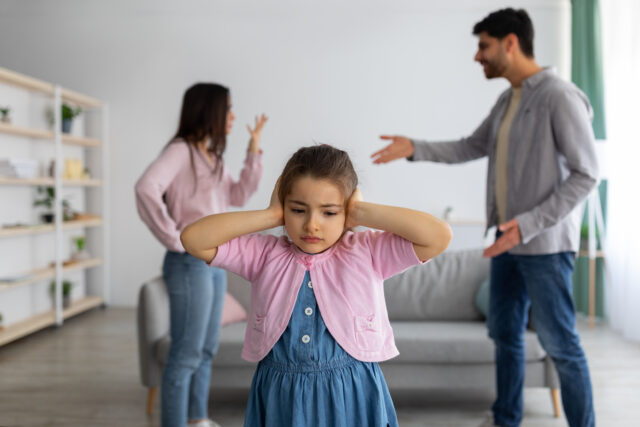
Divorce trains kids to read the emotional weather. You start scanning faces, tones, silences—for clues about whether today will be smooth or difficult. It becomes second nature to manage other people’s reactions before they even say a word. That sensitivity can be a superpower, but it can also leave you constantly tuned in to everyone else and tuned out from yourself.
11. Feeling weird about asking for help

When your family has been through emotional upheaval, you start to assume that everyone’s already maxed out. So, you figure things out alone, suppress your confusion, and tell yourself it’s not a big deal, even when it is. This becomes a reflex. You stop reaching out. Not because you don’t need help, but because you’ve trained yourself to believe you shouldn’t ask for it.
12. Struggling to define what a healthy relationship looks like

If the model you saw growing up was full of tension, coldness, or explosive fights, it’s hard to know what the alternative even looks like. You might swing between craving closeness and fearing it, or mistake intensity for love. You want stability, but your blueprint might be filled with conflict. Figuring out how to build something different takes real, intentional work.
13. Feeling guilty for things that weren’t your responsibility
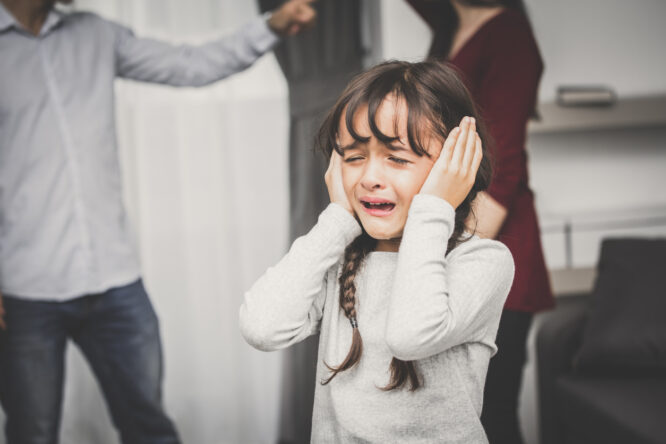
Kids often internalise the stress in the air, even if no one blames them directly. You might wonder if something you did made it worse, or carry guilt about which parent you enjoyed being with more. Maybe you even feel bad for being relieved when things finally ended. That guilt can be quiet but stubborn. And even when you rationally know it wasn’t your fault, the feeling doesn’t always get the memo.
14. Getting used to goodbyes
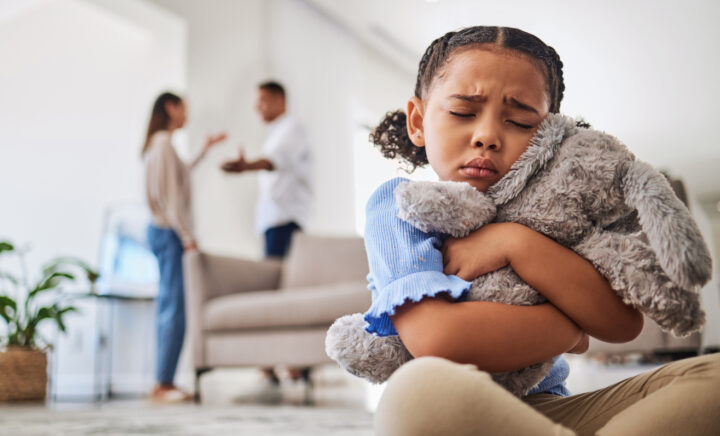
Weekend switches. Summer plans. Airport drop-offs. Divorce creates a rhythm of constant coming and going, and kids of divorce get used to saying goodbye over and over. It becomes part of the emotional background noise. Later on, this can show up as difficulty with attachment or resistance to getting too close because you’ve learned that nothing really stays.
15. Realising you were more affected than you admitted

Maybe you told yourself it was fine. Maybe you wanted to be the chill, well-adjusted one. Years later, something stirs—a relationship trigger, a boundary issue, a grief you didn’t know was still there. Then it hits you: this shaped you more than you realised. It doesn’t mean you’re broken. It means you grew up with a story that was complicated. Giving yourself the space to feel the full weight of it is part of healing—one that many never had permission for until much later.




